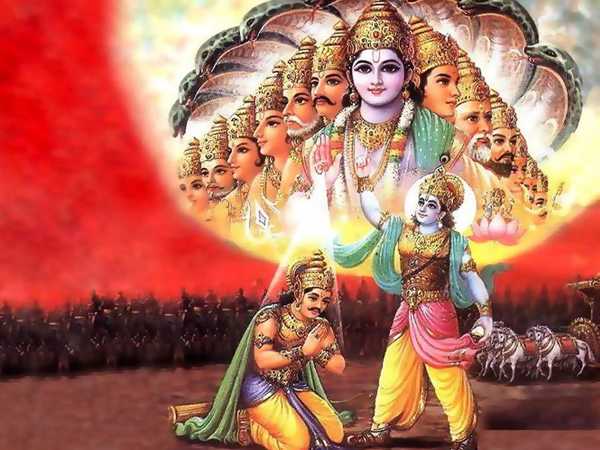Chapter 87

“Yudhishthira said, ‘I have heard, O Krishna, thy agreeable words. Theyare such as deserve to be spoken by thee. Gladsome and sweet as nectarare they, indeed, they fill my heart with great pleasure, O puissant one.O Hrishikesa, I have heard that innumerable have been the battles whichVijaya has fought with the kings of the Earth. For what reason is Parthaalways dissociated from ease and comfort? Vijaya is exceedinglyintelligent. This, therefore, pains my heart very much. I always, OJanarddana, think, when I am withdrawn from business, of Kunti’s sonJishnu. The lot of that delighter of the Pandus is exceedingly miserable.His body has every auspicious mark. What, however, O Krishna, is thatsign in his excellent body in consequence of which he has always toendure misery and discomfort? That son of Kunti has to bear anexceedingly large share of unhappiness. I do not see any censurableindication in his body. It behoves thee to explain the cause to me it Ideserve to hear it. Thus addressed, Hrishikesa, that enhancer of theglory of the Bhoja princes, having reflected for a long time, answered asfollows–‘I do not see any censurable feature in this prince, except thatthe cheek bones of this lion among men are a little too high. It is inconsequence of this that that foremost of men has always to be on theroad. I really do not see anything else in consequence of which he couldbe made so unhappy.’ Thus answered by Krishna of great intelligence, thatforemost of men, viz., king Yudhishthira, said unto the chief of theVrishnis that it was even so. The princess Draupadi, however, lookedangrily and askance at Krishna, (for she could not bear the ascription ofany fault to Arjuna). The slayer of Kesi, viz., Hrishikesa, approved ofthat indication of love (for his friend) which the princess of Panchala,who also was his friend, displayed.[204] Bhimasena and the other Kurus,including the sacrificial priests, who heard of the agreeable triumphs ofArjuna in course of his following the horse, became highly gratified.While they were still engaged in discoursing on Arjuna, an envoy camefrom that high-souled hero bearing a message from him. Repairing to thepresence of the Kuru king, the intelligent envoy bowed his head inreverence and informed him of the arrival of that foremost of men, viz.,Phalguna. On receipt of this intelligence, tears of joy covered theking’s eyes. Large gifts were made to the messenger for the veryagreeable tidings he had brought. On the second day from that date, aloud din was heard when that foremost of men, that chief of the Kurus,came. The dust raised by the hoofs of that horse as it walked in closeadjacence to Arjuna, looked as beautiful as that raised by the celestialsteed Uchchaisravas. And as Arjuna advanced he heard many gladdeningwords uttered by the citizens. ‘By good luck, O Partha, thou art out ofdanger. Praise to you and king Yudhishthira! Who else than Arjuna couldcome back after having caused the horse to wander over the whole Earthand after having vanquished all the kings in battle? We have not heard ofsuch a feat having been achieved by even Sagara and other high-souledkings of antiquity. Future kings also will never be able to accomplish sodifficult a feat, O foremost one of Kuru’s race, as this which thou hastachieved.’ Listening to such words, agreeable to the ear, of thecitizens, the righteous-souled Phalguna entered the sacrificial compound.Then king Yudhishthira with all his ministers, and Krishna, the delighterof the Yadus, placing Dhritarashtra in their van, went out for receivingDhananjaya. Saluting the feet of his sire (Dhritarashtra), and then ofking Yudhishthira the just of great wisdom, and then worshipping Bhimaand others, he embraced Kesava. Worshipped by them all and worshippingthem in return according to due rites, the mighty-armed hero, accompaniedby those princes, took rest like a ship-wrecked man tossed on the wavesresting on reaching the shore. Meanwhile king Vabhruvahan of greatwisdom, accompanied by his mothers (Chitrangada and Ulupi), came to theKuru capital. The mighty-armed prince duly saluted all his seniors ofKuru’s race and the other kings present there, and was honoured by themall in return. He then entered the excellent abode of his grand-motherKunti.”‘




